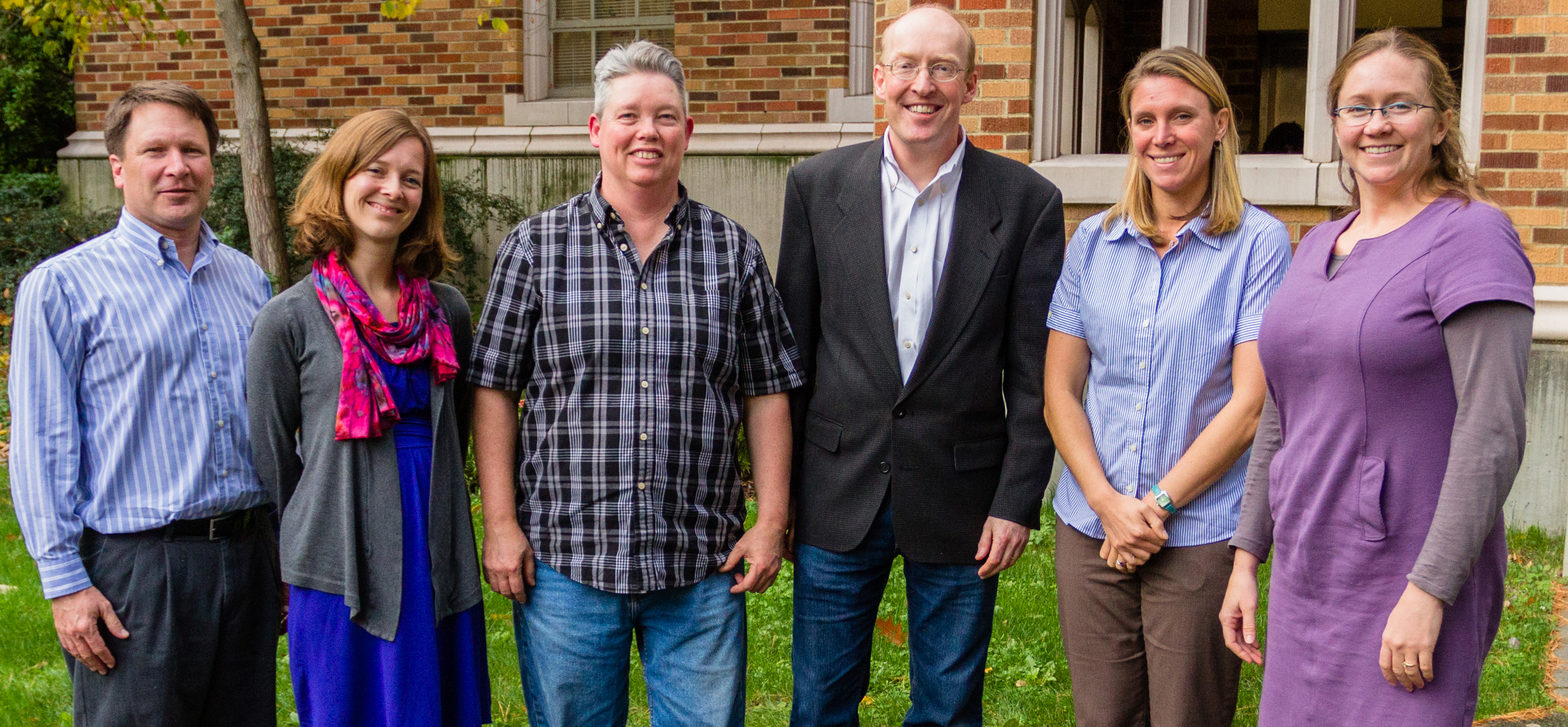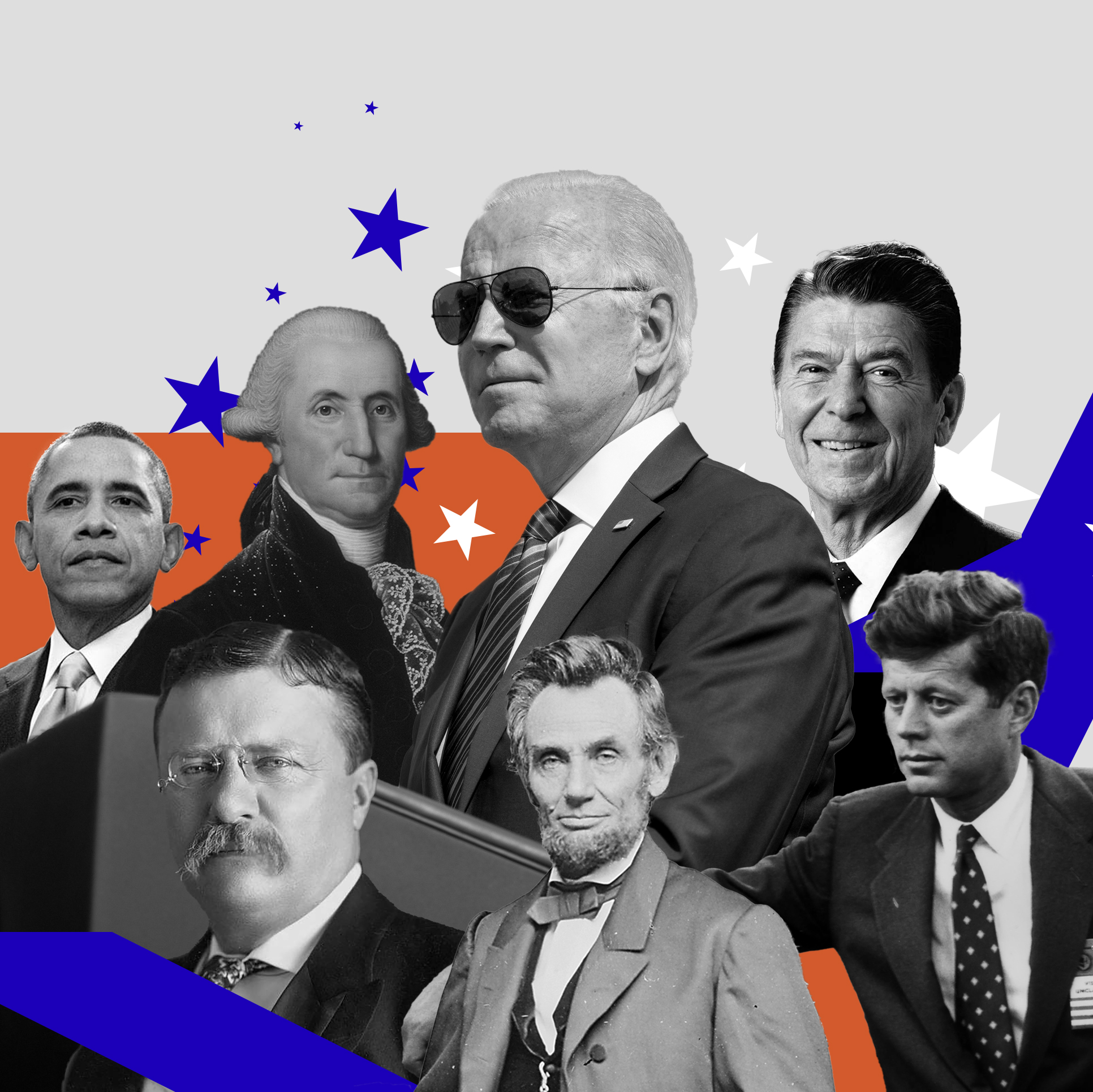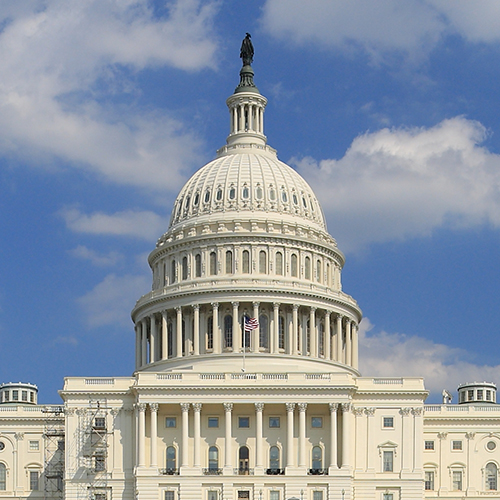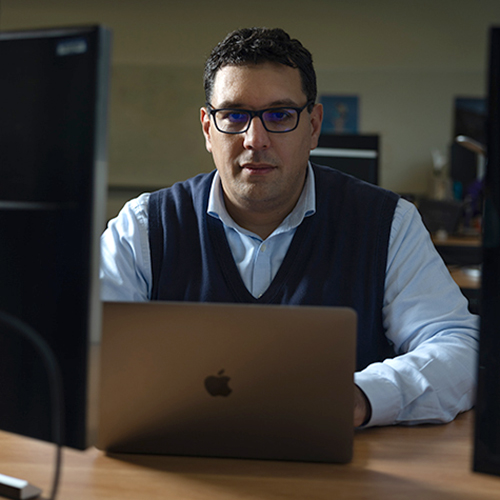It’s 8 pm. Sergeant Christopher Land opens his laptop in a quiet corner of his off-base apartment near Camp Humphreys in South Korea. He’s been up since 5:30 am, first completing a required workout, then supervising soldiers as they rebuild helicopter engines. After dinner with his family and a bath for his five-month-old daughter, he finally has time to complete research for his social science theory class.
Land is a UW undergraduate, pursuing a bachelor’s degree through the University’s new online Integrated Social Sciences (ISS) degree program. The online program, based in the College of Arts and Sciences, makes it possible for non-traditional students like Land to earn a degree, taking classes from the same top faculty as students on campus.

“In today’s military, even as an enlisted soldier, most people recognize that greater civilian education leads to a more successful military career,” says Land. “While many commanders and senior leaders support soldiers going to college, for the most part the mission doesn’t allow you to complete your degree during the day. So the flexibility of the program is extremely important.”
ISS was launched in autumn 2014 as a way for the UW to open its doors to people who are space-bound, time-bound, or work-bound. Students enter the program with two or more years of college behind them and a desire to complete a bachelor’s degree. About 260 students are currently enrolled in the program, including quite a few military personnel, family of military personnel, and veterans. About 85 percent of ISS students are from Washington state.
ISS courses should not be confused with the Massive Open Online Courses (MOOCs) offered by many universities. Like MOOCs, ISS lectures are recorded so that students may view them at their convenience, speeding them up, slowing them down, and re-watching them as needed. But unlike MOOCs, ISS courses are part of a carefully constructed degree program with five core courses and dozens of upper-level electives. The program culminates with a capstone project in which students curate their best work—learning plans, articles, self-reflection essays, maps, and other materials—organizing them in an electronic portfolio that showcases their learning and achievements.
There is magic in the lecture hall.... But I think there’s equally a kind of magic that happens in the online teaching space.
Along the way, students work closely with an academic adviser to navigate ISS’s many options. “We encourage students to reflect on the courses they plan to take, the courses they’ve already taken, what they’ve learned, and what it has to do with anything else in their lives,” says Mel Wensel, director of academic services for ISS. “We don’t sit passively and wait for them to contact us. We actively monitor and make sure they are making good academic progress, and reach out to support anybody who looks like they might be faltering or experiencing challenges. We also keep up with their successes and celebrate those.”
The monitoring is made easier by Canvas, a learning management system through which faculty deliver lectures, assignments, and quizzes. Canvas also features discussion boards and makes possible collaborative work and peer review. Faculty and advisers stay in touch with students in other ways as well. “There are a lot of emails between students and advisers, and students and instructors,” says Wensel. “And we maintain an ISS Facebook page, where students are able to communicate a little less formally.”

Chris Land says the Facebook page helps him feel connected despite being half a world away. “People share common issues or interesting articles related to our studies in the social sciences, or they just jump on to say ‘Go Dawgs!’ on game day,” he says of the site. “That, along with the UW’s strong social media presence, makes me feel like I am back in Washington and a part of the community.”
Land also sings the praises of the program’s advisers and faculty, describing them as “immensely helpful, very supportive, and extremely accessible.” Matt Sparke, professor of international studies and geography and director of ISS, explains that some faculty joined the program to be part of an innovative new venture while others welcomed the opportunity to reach an adult population of underserved students. For both groups, the experience has exceeded their expectations.
“I don’t think many of the faculty fully anticipated the enjoyment of teaching online and the thrill of seeing how rich the student-faculty exchanges are,” says Sparke. “Faculty have spontaneously contacted us to say, ‘This is amazing. I know what my students are thinking. When I was in a large lecture hall, I thought I knew what they were thinking, but I didn’t have this clear and constant sense of it.’ That was really eye-opening for them.”
Sparke is quick to point out that the campus classroom and the online experience each have their own strengths. “There is magic in the lecture hall,” he says. “I don’t want to deny that. There are moments of connection when students’ minds are really set on fire by new ideas. But I think there’s equally a kind of magic that happens in the online teaching space. You have people with really interesting real-world experiences to bring to those discussions. We’ve got people coming to an online class from Korea and Cuba and Europe, and from different parts of Washington state, including two tribal students joining us this year. That brings so much diversity to the conversation.”
Next month, 17 students from the program’s first entering class will graduate. Others will take a little longer, having arrived with fewer credits or competing commitments. ISS offers the option to take a quarter off as needed, as a student in the Army Reserve did when he was deployed last winter.
That flexibility, so appealing to students, makes budgetary planning a challenge for the self-sustaining program. But Sparke remains undaunted, and eager to watch the program mature.
“It’s exhilarating to be part of this,” he says. “It’s allowed so many of us to see the UW in genuinely boundless ways.”
For more about the Integrated Social Sciences program, visit www.socialsciencesonline.uw.edu.
More Stories

Is This Presidential Campaign Different?
UW History professor Margaret O'Mara provides historical context for this moment in US presidential politics.

Making Sense of This Political Moment
To navigate this momentous election season, Arts & Sciences faculty suggest 10 books about the US political landscape.

A Statistician Weighs in on AI
Statistics professor Zaid Harchaoui, working at the intersection of statistics and computing, explores what AI models do well, where they fall short, and why.